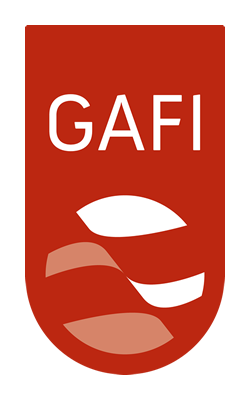Brisbane, le 26 juin 2015 - Le Groupe d'action financière (GAFI) est l’organisme responsable de l’élaboration de normes en matière de lutte contre le blanchiment de capitaux et le financement du terrorisme (LBC/FT) à l’échelle mondiale. Afin de protéger le système financier international des risques associés au blanchiment de capitaux et au financement du terrorisme (BC/FT) et afin de promouvoir le respect des normes de LBC/FT, le GAFI a déterminé les juridictions qui présentent des défaillances stratégiques et travaille avec ces juridictions pour remédier aux défaillances constituant un risque pour le système financier international (suite disponible en anglais uniquement).
|
Jurisdictions subject to a FATF call on its members and other jurisdictions to apply counter-measures to protect the international financial system from the on-going and substantial money laundering and terrorist financing (ML/FT) risks emanating from the jurisdictions.
|
|
Iran
Democratic People’s Republic of Korea (DPRK)
|
|
Jurisdictions with strategic AML/CFT deficiencies that have not made sufficient progress in addressing the deficiencies or have not committed to an action plan developed with the FATF to address the deficiencies. The FATF calls on its members to consider the risks arising from the deficiencies associated with each jurisdiction, as described below.
|
|
Algeria
Myanmar
|
Iran
The FATF remains particularly and exceptionally concerned about Iran’s failure to address the risk of terrorist financing and the serious threat this poses to the integrity of the international financial system, despite Iran’s recent engagement with the FATF.
The FATF reaffirms its call on members and urges all jurisdictions to advise their financial institutions to give special attention to business relationships and transactions with Iran, including Iranian companies and financial institutions. In addition to enhanced scrutiny, the FATF reaffirms its 25 February 2009 call on its members and urges all jurisdictions to apply effective counter-measures to protect their financial sectors from money laundering and financing of terrorism (ML/FT) risks emanating from Iran. The FATF continues to urge jurisdictions to protect against correspondent relationships being used to bypass or evade counter-measures and risk mitigation practices and to take into account ML/FT risks when considering requests by Iranian financial institutions to open branches and subsidiaries in their jurisdiction. Due to the continuing terrorist financing threat emanating from Iran, jurisdictions should consider the steps already taken and possible additional safeguards or strengthen existing ones.
The FATF urges Iran to immediately and meaningfully address its AML/CFT deficiencies, in particular by criminalising terrorist financing and effectively implementing suspicious transaction reporting requirements. If Iran fails to take concrete steps to continue to improve its CFT regime, the FATF will consider calling on its members and urging all jurisdictions to strengthen counter-measures in October 2015.
Democratic People's Republic of Korea (DPRK)
Since February 2015, the DPRK engaged with the FATF regarding the deficiencies identified in its action plan developed with the FATF.
However, the FATF remains concerned by the DPRK’s failure to address the significant deficiencies in its anti-money laundering and combating the financing of terrorism (AML/CFT) regime and the serious threat this poses to the integrity of the international financial system. The FATF urges the DPRK to immediately and meaningfully address its AML/CFT deficiencies.
The FATF reaffirms its 25 February 2011 call on its members and urges all jurisdictions to advise their financial institutions to give special attention to business relationships and transactions with the DPRK, including DPRK companies and financial institutions. In addition to enhanced scrutiny, the FATF further calls on its members and urges all jurisdictions to apply effective counter-measures to protect their financial sectors from money laundering and financing of terrorism (ML/FT) risks emanating from the DPRK. Jurisdictions should also protect against correspondent relationships being used to bypass or evade counter-measures and risk mitigation practices, and take into account ML/FT risks when considering requests by DPRK financial institutions to open branches and subsidiaries in their jurisdiction.
|
Algeria
Algeria has taken steps towards improving its AML/CFT regime, including by issuing terrorist asset freezing regulations. The FATF has not assessed Algeria’s new measures on terrorist assets freezing due to their recent nature, and therefore the FATF has not yet determined the extent to which they address the earlier deficiency identified regarding the establishment and implementation of an adequate legal framework for identifying, tracing and freezing terrorist assets. The FATF welcomes Algeria’s progress and encourages Algeria to continue the process of implementing its action plan.
Myanmar
Myanmar has taken steps towards improving its AML/CFT regime. However, despite Myanmar’s high-level political commitment to work with the FATF and APG to address its strategic AML/CFT deficiencies, Myanmar has not made sufficient progress in implementing its action plan, and certain strategic AML/CFT deficiencies remain. Myanmar should continue to work on implementing its action plan to address these deficiencies, including by: 1 adequately criminalising terrorist financing; 2 establishing and implementing adequate procedures to identify and freeze terrorist assets; 3 ensuring an operationally independent and effectively functioning financial intelligence unit; and 4 strengthening customer due diligence measures. The FATF encourages Myanmar to address the remaining deficiencies and continue the process of implementing its action plan.

 Twitter
Twitter
 Facebook
Facebook
 Instagram
Instagram
 Linkedin
Linkedin
